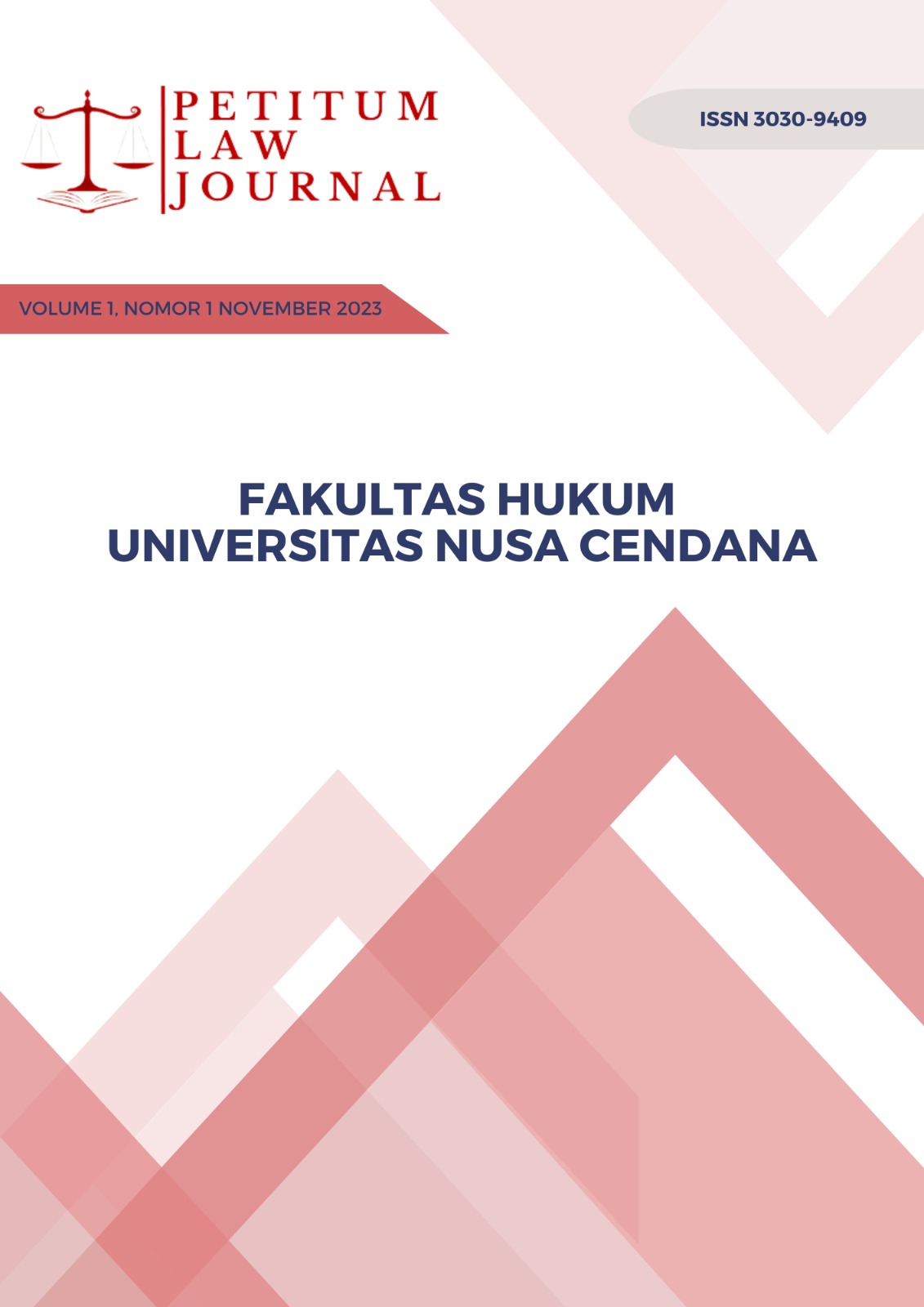PENGATURAN KUOTA 30% PEREMPUAN DALAM PEMILIHAN LEGISLATIF DAN IMPLEMENTASINYA TAHUN 2014 DAN 2019 DI KABUPATEN NGADA
Main Article Content
Abstract
Setting a 30% quota for women's representation in legislative elections is one of the affirmative action policies implemented in Indonesia. The aim of this policy is to increase women in the political sphere and eliminate discrimination against women. Even though there are regulations that support women's political rights, the quota for women in legislative seats is not fulfilled. Currently, the reality in Ngada Regency is that women's representation in the legislature is still very low. The problems in the thesis are; (1) Does setting a 30% quota for women in general elections support the development of Human Rights? (2) How is the 30% quota for women implemented in the 2014 and 2019 legislative general elections in Ngada Regency? This research is legal research of a juridical nature supported by empirical legal research where the data is obtained directly from the research location while still paying attention to the implementation of positive legal provisions and factual contact with each particular legal event that occurs in society and using qualitative descriptive juridical analysis. Data collection used interview guidelines conducted with 9 sources. The results of this research show that: (1) Setting a 30% quota for women in general elections really supports the development of human rights more specifically for women's political rights. (2) Implementation of the 30% quota arrangement for women's representation in the political realm in Ngada Regency is still limited to nominations, not extending to legislative members in Ngada Regency. This is caused by several things, starting from women themselves, regulations issued by the government, to the views and culture of the people of Ngada district.

